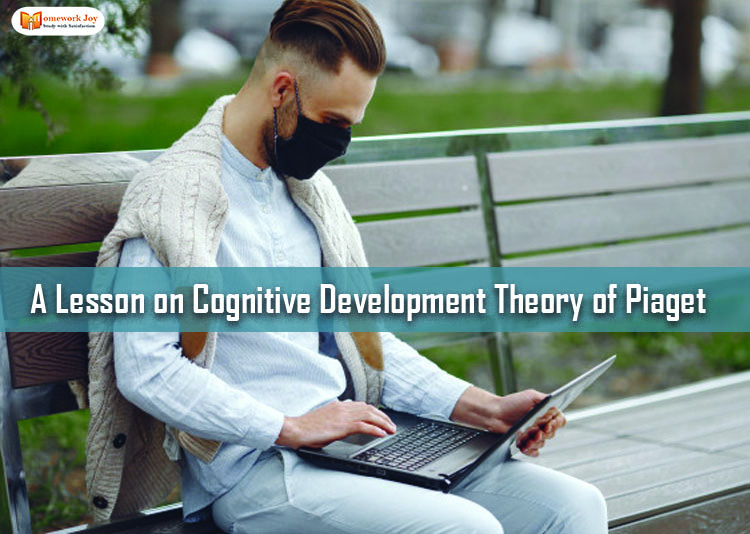For learning anything, it is essential to have IQ. But do you know what it means? So today, we’ll discuss the famous cognitive development theory of Piaget to understand how our mind develops. In 1936, Jeans Piaget, a French psychologist, states the theory of cognitive development that explains how a child understands the world.
This topic covers the psychological development of a child’s mind. So if you have to make an assignment on the subject, you can take help from here. Now lets’ get started to understand the theory.
But before moving ahead, check some of our latest posts that can help you with homework:
How to Write a Book Report | Step by Step Guide
5 Levels of Maslow’s Hierarchy of Needs
Cognitive development Theory of Piaget is essential for those who work with children like teachers. It helps us to understand children’s mental development. So there are four main stages that Jean Piaget mentioned in his theory of cognitive development. We’ll know each of them in-depth. But first, let’s understand what cognitive development is.
What is Cognitive Development?
Cognitive development is the development of the thought process from early childhood to adulthood. It includes remembering, problem-solving, and decision-making. Thus it focuses on how a person perceives, thinks, understands the world through the interaction of genetic.
A Short History of Cognitive Development Theory
Before the cognitive development theory of Piaget, it was believed that the infant could not think or form cognition until they learn the language. Thus to test this statement, the first theory was given by an American psychologist Lewis Terman named ‘Intelligent Quotient’ (IQ) in 1916.
According to his theory, “a child’s average intelligence matches his or her age.” However, there are also some exceptions, like the gifted child’s performance matches the older child. Thus based on this theory, IQ tests are instrumental in the United States. But this IQ theory faced criticism for defining intelligence too narrowly and for being biased.
After that came the learning theory, given by researchers John Watson and B.F. Skinner. They argued that children are whole malleable. According to this theory, environmental factors are responsible for shaping a child’s intelligence. But the approach had some loopholes. Thus Jean Piaget stated the theory of cognitive development. So let’s understand his theory in brief.
Key Concepts of Cognitive Development Theory of Piaget
Cognitive Development Theory of Piaget suggests that children transit four stages of mental development. He focuses not only on how children acquire knowledge but also on the nature of intelligence. For understanding the mental health of children, it is essential to understand these four stages of development. The following are four stages of Piaget’s cognitive development:
- Sensorimotor or Infancy Stage (0 to 2 years)
- Pre-operational stage (2 to 7 years)
- Concrete Operational Stage (7 to 11 years)
- Formal Operational Stage (12 and more)
According to Piaget, children take an active part in learning processes. Moreover, they perform their experiments, observe things around them, and learn about the world. As kids observe things, they add new knowledge to build upon existing knowledge. That is why they can adapt to new things around them.
The cognitive development theory of Piaget was inspired by observing his nephew and daughter. These observations helped him in constructing the hypothesis that “children’s minds are not merely smaller versions of adult minds.” Thus he explained that the way children think is different from the way adults think.
Further, he stated intelligence is something that grows through a series of stages. Also, older children don’t think faster than younger children. However, there are both quantitative and qualitative differences in the thinking of young and old children. Thus he concluded children are not less intelligent. Instead, they think differently. That is why Albert Einstein called his theory, “It is so simple that only a genius could have thought of it.”
The four stages we mentioned above are the pillars of his theory. So let’s know more about these stages.
Four Stages of Cognitive Development Theory of Piaget
After observing his children, Piaget developed four stages of intellectual development.
Sensorimotor or Infancy Stage
This stage starts with the birth of a child to 2 years. The following are some major characteristics and developmental changes that a child goes through:
- They know the world through sensory experiences
- There are everyday actions through which they learn like grasping, listening, and motor responses
- Children move through the period of dramatic growth and learning
- Cognitive development at this stage is for a smaller duration but involves a great deal of growth
- Children begin to attach names and word to objects
Pre-operational Stage or Toddlerhood
This stage begins from 2 years and lasts to 7 years of age. In this stage, children demonstrate their intelligence through the use of symbols, languages, memory, and imagination. But this thinking is somewhat non-logical or in a non-reversible manner. Also, in some children, egocentric thinking predominates.
Concrete Operational Stage or Early Adolescence
children are between the ages of 7 to 11 years during this stage. Children begin to understand the concept of conservation (mass, length, liquid, and so on). Thus from this stage, their thinking becomes more logical and organized. They begin to use their thinking and opinions logically.
Formal Operational Stage or Adulthood
After 12 years of age, children start experiencing this final stage of cognitive development theory of Piaget. During this stage, children start developing critical thinking, deductive logic, and reasoning; they process-specific information from general concepts. At this point, they see multiple solutions to a problem.
So these were some essential information about the cognitive development theory of Piaget. His method helps us to understand that there is a qualitative change in how children think through four stages. We are considering that you will be able to understand his theory. Further, if you need more help in understanding the concept, you can take psychology online assignment help from professionals.
